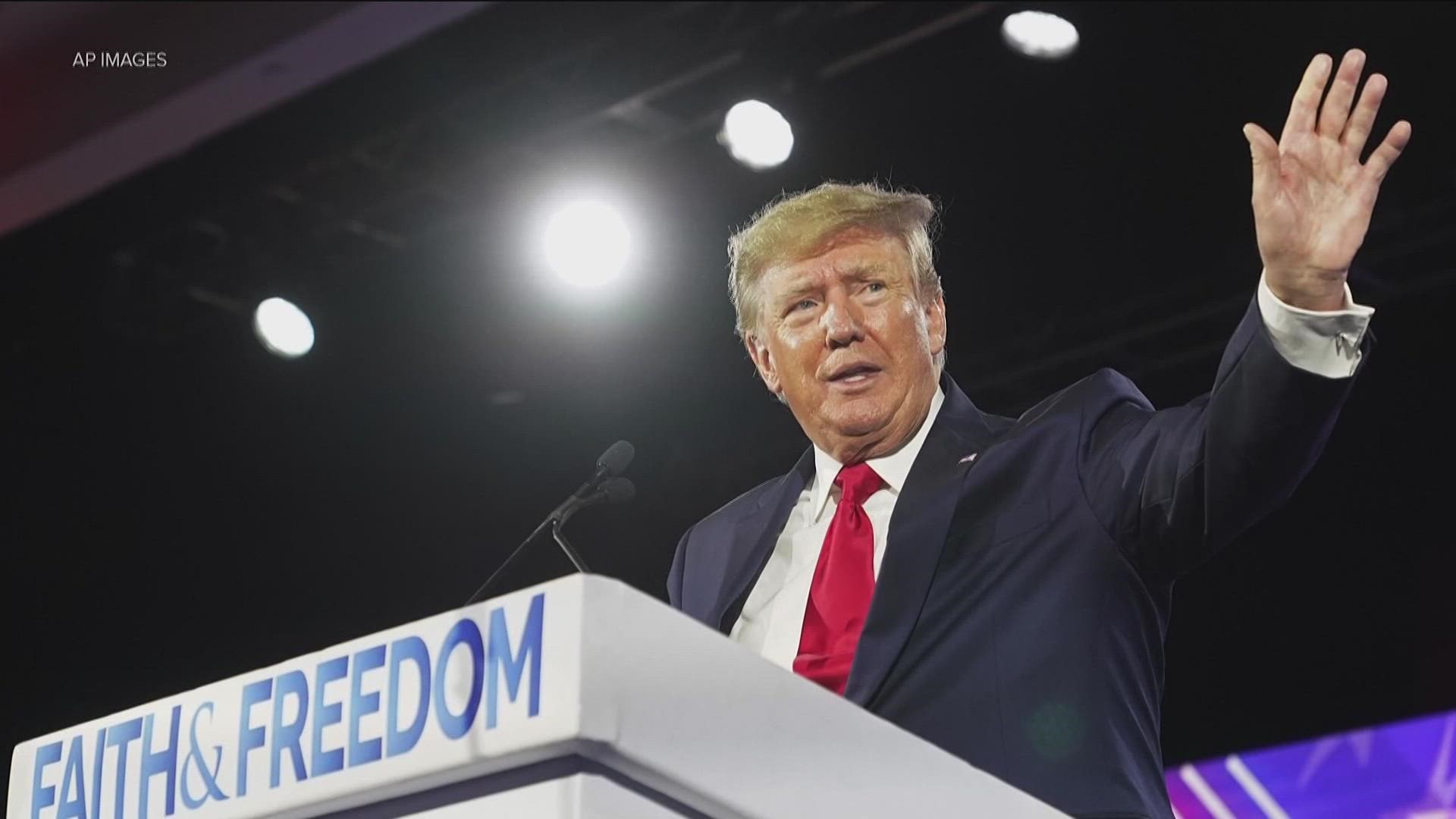ATLANTA — South Carolina's Supreme Court ruled on Tuesday that Mark Meadows, the one-time White House chief of staff under former President Donald Trump, must testify in the Fulton County special purpose grand jury examining efforts to undermine the 2020 presidential election in Georgia.
The ruling will bring to Atlanta one of the closest individuals to Trump personally yet to appear before the special purpose grand jury.
Fulton County District Attorney Fani Willis opened the investigation early last year into actions taken by Trump and others to overturn his loss to Democrat Joe Biden. Meadows is one of a number of high-profile associates and advisers of the Republican former president whose testimony Willis has sought.
The South Carolina Supreme Court upheld an earlier ruling by a lower court judge in that state compelling Meadows to testify in Georgia. Their decision said they found his arguments raised on appeal "to be manifestly without merit."
Because Meadows doesn't live in Georgia, Willis, a Democrat, had to use a process that involves getting a judge where he lives in South Carolina to order him to appear. She filed a petition in August seeking to compel his testimony. Fulton County Superior Court Judge Robert McBurney, who's overseeing the special grand jury, signed off on the petition, certifying that Meadows is a “necessary and material witness” for the investigation.
Circuit Court Judge Edward Miller in Pickens County, South Carolina, honored McBurney's finding and ordered Meadows to testify.
In the petition seeking Meadows’ testimony, Willis wrote that Meadows attended a Dec. 21, 2020, meeting at the White House with Trump and others “to discuss allegations of voter fraud and certification of electoral college votes from Georgia and other states.” The next day, Willis wrote, Meadows made a “surprise visit” to Cobb County, just outside Atlanta, where an audit of signatures on absentee ballot envelopes was being conducted. He asked to observe the audit but wasn’t allowed to because it wasn’t open to the public, the petition says.
Meadows also sent emails to Justice Department officials after the election alleging voter fraud in Georgia and elsewhere and requesting investigations, Willis wrote. And he participated in a Jan. 2, 2021, phone call with Georgia Secretary of State Brad Raffensperger, during which Trump suggested the state’s top elections official, also a Republican, could “find” enough votes to overturn his narrow election loss in the state.
Meadows' attorneys had argued that executive privilege and other rights shield his client from testifying.
Sen. Lindsey Graham, of South Carolina, testified before the grand jury last week.
Michael Flynn, who served briefly as national security adviser under Trump, had been ordered to testify last week as well, but a Florida judge issued a provisional stay of that order after Flynn appealed.
Former U.S. House Speaker Newt Gingrich had also been ordered by a Virginia judge to testify Nov. 29, but that has been stayed pending appeal.
Former Meadows aide Cassidy Hutchinson, who previously testified before the U.S. House committee investigating the Jan. 6, 2021, attack on the U.S. Capitol, answered questions from the special grand jury in November.
Special grand jury proceedings are secret, but some related public court filings have shed light on the scope of the investigation.
From the start Willis has said she was interested in a Jan. 2, 2021, phone call between Trump and Sec. of State Brad Raffensperger. The Republican president urged the state's top elections official to "find" the votes needed to reverse his narrow loss in the state to Democrat Joe Biden.
It has also become clear that she is interested in several other areas, including: the submitting of an illegitimate slate of Republican electors from Georgia who falsely declared that Trump won the state; false statements about the election made by former New York mayor and Trump attorney Rudy Giuliani and others to state lawmakers; efforts to pressure a Fulton County elections worker to admit wrongdoing; breaches of election equipment in rural Coffee County; and the abrupt departure of the U.S. attorney in Atlanta in January 2021.
Willis has notified Giuliani, who testified before the special grand jury in August, and the Georgia "alternate" electors that they could face criminal charges in the investigation.
Special grand juries in Georgia are generally used to investigate complex cases with many witnesses. They can compel evidence and subpoena testimony from witnesses, but they cannot issue indictments.
Once its investigation is complete, a special grand jury can recommend action, but it remains up to the district attorney to decide whether to then seek an indictment from a regular grand jury.

